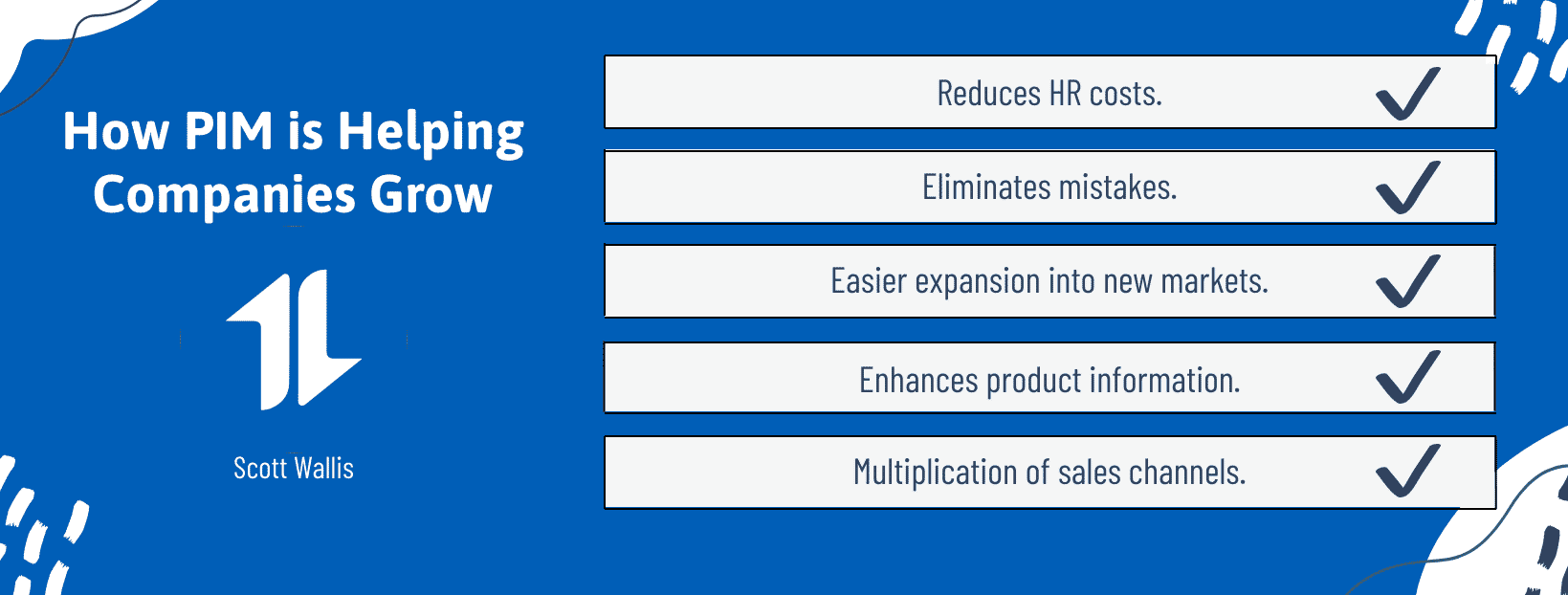
In the never-ending quest for companies to stand out from their competition, so often the focus is almost entirely on the front end of the business. Improving how it looks to potential customers. But how a company operates at the back end, behind the scenes, can have a huge impact on future growth prospects. This is where Product Information Management systems come in.
Using a PIM system to organise product data can speed up operations, maximising the efficiency of the workforce, whilst eliminating mistakes and providing a great platform to expand. They allow companies to stand out from the crowd with detailed product pages across multiple sales channels, leaving rivals scratching their heads trying to work out just how they do it.
Reducing Human Resource Costs
Of course, staff are one of the biggest costs to any company. Therefore maximising staff efficiency is a crucial part of success. PIM systems are tools which really aid that efficiency, providing one source of truth for all product information and even automating much of the sales process. Everyone who needs it has access to accurate data, whenever they want it. It's well-organised and easily locatable within the PIM. Furthermore, that product information is being automatically sent to Amazon, catalogues and wherever else by the PIM, without someone having to do it. This time saving allows salespeople to spend more of their time, well, selling! Not getting bogged down by having to manually update every single website and platform with the latest specifications.
Eliminating Mistakes
This goes back to that "one source of truth" aspect of the PIM. When marketers, salespeople and data managers have access to reliable, up-to-date product information, there's no risk of mistakes. No concern about accidentally giving a customer some wrong specifications, or there being a typo in a catalogue. This translates into improved customer satisfaction, which can only have a positive impact on future growth.
Expand Into New Markets
Increasing globalisation presents amazing opportunities for businesses. Never has it been so easy to sell your products around the world. But a big obstacle that remains is red tape. Every trading bloc has different regulations and criteria around product information and with the UK's departure from the EU looming in 2021, good data management is going to be critical for expanding into new markets. PIM systems are built with this in mind. Some can even export data directly into required formats, such as ETIM.
Enhances Product Information
With eCommerce, product details, descriptions and 'digital assets' (photos/videos to you and me) are a critical part of any sale. Particularly with higher-value items. When there isn't someone to talk to about a product, customers need their questions to be answered by the website. PIM systems leave companies best placed to have extremely detailed product pages, across all their sales websites, because any information in the software can be sent automatically to these eCommerce sites. Firms then have rich online product pages with images optimised for search engines, increasing the likelihood of a conversion.
Multiply Sales Channels
I've already covered how a Product Information Management system can automatically send product data to sales channels. Of course, that gives companies the opportunity to scale up the number of places they sell, without it becoming too much of a drain on staff resources. Amazon, Shopify, SquareSpace, and BigCommerce products can be listed across an unlimited number of outlets, with no need to manually manage the product data on them all and we can confidently assume the more sales avenues a business has, the increased likelihood of growth and expansion.
A good Product Information Management system is a secret weapon for a business. Empowering staff to get things done, bringing consistency and accuracy to all sales platforms, and helping them expand in the increasingly competitive world.